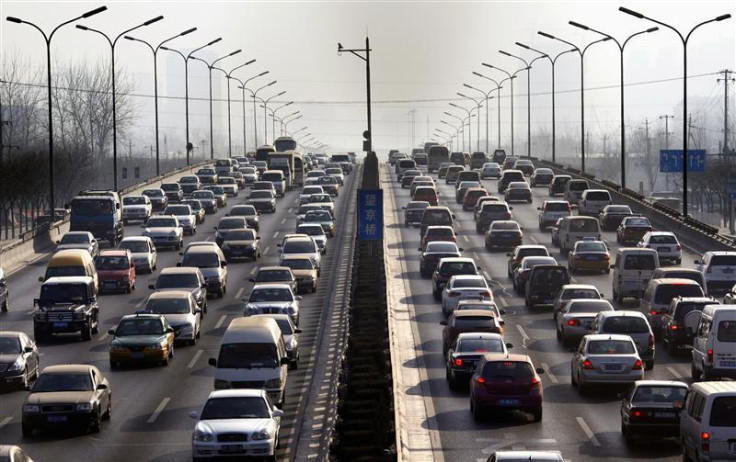Major car makers slash China manufacturing output and salaries

Major car makers have started to cut back on Chinese manufacturing output and slash wages and other costs in a move to counter the sharp slowdown in the world's biggest vehicle market. German manufacturers are expected to be the hardest hit, given their strong presence in China.
"The golden years are over in China," said Stefan Bratzel, director of the Center of Automotive Management, according to AFP.
Peter Fuss, an auto expert at Ernst & Young said: "For years now, rivals could only see the tail-lights of their German competitors. But the air is getting thinner for them too. Their strong dependence on the Chinese market could now be seen as an Achilles heel."
German auto expert Ferdinand Dudenhoeffer believes makers of cheaper and more affordable cars will do better than their higher-end rivals. The premium sector, dominated by Audi, BMW and Mercedes-Benz, he predicts will see stagnant sales in China in 2015 and a drop of 4-5% next year.
China remains the most important car market in the world and German makers continue to command a strong position, Matthias Wissman, the head of the German automakers federation VDA said. "The goal is to hold on to that position," he said.
"The golden years are over in China."
Shanghai Daily said Volkswagen's Chinese joint-venture, FAW-VW is canceling staff bonuses and cutting shifts at its plants near Changchun in the Jilin Province, according to those close to the matter. Bonuses normally account for half of the assembly line workers' take-home pay.
They are not the only ones. Volkswagen's Audi brand said it had cut output at its Chinese plants, dropping the working week from seven days to five days following lower demand for some of its models.
Germany's BMW was not far behind in reacting to the slowdown in new vehicle uptake in China. On 15 September, it said that it had cut the manufacture of Chinese produced 3 and 5 series models. "We reacted relatively fast. We are not stockpiling," Friedrich Eichiner, BMW's Chief Financial Officer said.
The newspaper said demand for cars in China, normally the profit engine for global auto manufacturers, was flat in the first eight months this year. Demand for cars could drop in 2015 could fall for the first time since the market took off in the late 1990s, it said.
Car makers however seem to be putting on a brave face at the Frankfurt auto show with industry leaders expressing confidence about the Chinese market's long term growth potential. They said that any short-term declines could be offset by the recovery in Europe.
In August, European car sales rose 11.5% year-on-year. Car sales nearly trebled in China to 23 million units between 2007 and 2014 but they are only expected to grow by 35% between 2014 and 2021, according to consultants AlixPartners.
Coming on the back of a 14% growth in 2013, and then 7% in 2014, market experts are now looking at around 3% growth for 2015.
Although Elmar Kades from AlixPartners said the "normalisation of the Chinese market was expected," AFP notes that the slowing economy and falling stock market are putting additional brakes on the sales of foreign made cars in China.
Research group IHS Automotive forecasts car makers' capacity utilisation rates in China to fall to 65% from last year's 70%, a key profitability threshold.
Clemens Wasner from Austrian automotive consultancy EFS , which advises several German car makers in Asia said: "The mood is very depressed at VW, BMW and GM."
China accounts for more than half of VW's profits and about 40% of General Motors, Both companies have started to cut local production by 5%, according to a China-based consultant, Shanghai Daily reports.
© Copyright IBTimes 2025. All rights reserved.






















